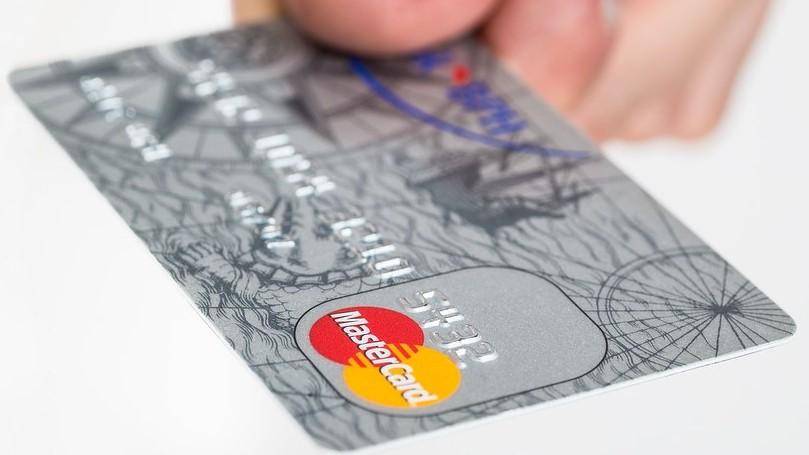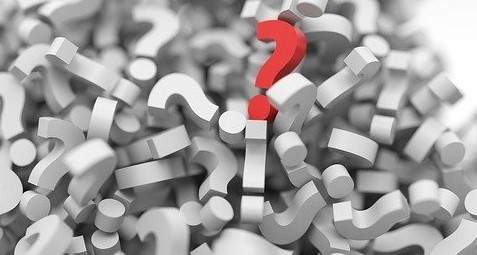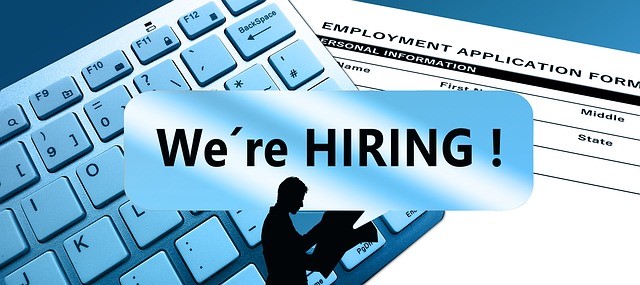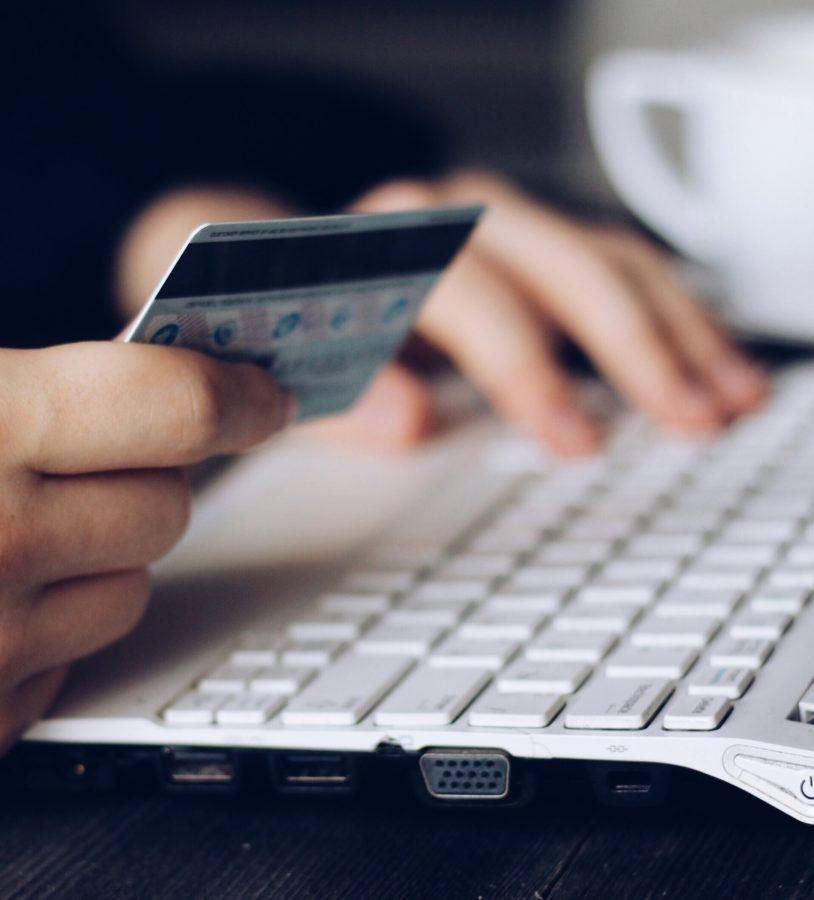
If you’re on my blog odds are you are battling debt just like me; credit cards, student loans, car loans, mortgage, everyday utility bills, and the list goes on and on.
Then why am I encouraging credit card usage to help your finances?
Answer: This is the easiest line of credit to obtain with the greatest impact on your financial life whether it is good or bad.
This blog post is going to cover all of the ways you can use credit to positively impact your finances and it is easier than you think.
Story: I have been an accountant for 9 years. (Yes, accountants have college debt just like everyone else.)
I had a client I was coaching on his finances who was a very old school thinker when it comes to money.
-
-
-
- You only buy things with cash.
- You don’t trust banks and basically store your savings in the bedroom mattress. (What are we, on the Oregon Trail?!?)
- Plastic isn’t money, it is a scam to steal your money.
-
-
Due to this way of thinking when he was 60 years old he had no credit history…that’s right! ZERO CREDIT HISTORY, meaning the banks have no idea if they could trust him with a line of credit.
That Christmas he was at his favorite store, Cabela’s, and he was going to get 30% off of the purchase price of a fishing pole he wanted. All he had to do was apply for the store credit card with 0% interest for the first 12 months and get approved.
Guess what?
He was denied because he had no credit history.
The only reason he had agreed to apply for the credit card is because he could pay off the entire balance by the first month’s payment date without being charged interest.
Long story short, his daughter went to the store and co-signed on the credit card account so he could get approved.
After the first year of establishing a credit history for himself his daughter would be removed off of the account.
Boy, I bet she’s glad this wasn’t a car loan or a mortgage loan!
Now let’s get into how to prevent this situation from happening to YOU!
Credit Cards Help Build Credit History
Ok, here are the obvious reasons why having a good credit history is important.
-
-
-
Qualify for a line of credit: Auto loans, car loans, consolidation loans, credit cards, etc.
- Get a lower interest rate on that line of credit.
-
-
Here are the not so obvious reasons for having a good credit history.
-
-
-
A bad credit history could prevent you from being able to rent a place to live or rent a car when yours is broken down.
- Bad history could also prevent you from getting a job. Employers will view you has high risk for theft.
-
-
Do you really need any more convincing of the importance of this?
You understand the why but do you understand the what? Most people don’t know exactly what a credit history measures.
Not understanding this measurement makes it difficult to make proper choices when carrying a credit card balance.
So let’s breakdown how your credit history is measured and how it is used.
-
-
-
35% of your score is payment history. Lenders are the most concerned with your ability to pay on time.
-
30% is your level of debt. This is the amount of debt you have compared to what your credit limit is. If you keep your credit card balance at 30% less than your limit your credit score will be higher.
-
15% is the length of your credit history. In other words, the longer you have had a credit card account open the better. It gives a more accurate measurement of your spending habits.
-
10% are inquiries. Every time you fill out an application for a line of credit it shows up on your credit history. Too many makes it look like you are taking on too much debt. (whether you are approved or not)
-
10% is the credit mix you have. Having different types of credit on your history makes you look like you know what you are doing with a mix of credit. Don’t open accounts just to have a good mix.
-
-
I know this is a lot of information but if you do nothing else always pay your bills on time since it is the largest percentage of your credit history measurement.
Have a question?
Subscribe or email me
at ask@howtobudgetnow.com.
[mc4wp_form id=”77″]
Credit Cards Have Better Fraud Protection
If you are able to pay off your credit card balance in full every month it is safest to use a credit card to do your monthly shopping.
If you are carrying a balance every month and paying interest it is best to pay off the card before starting this new habit.
Credit cards have a better fraud protection plan in case the credit card number or the card itself gets stolen. When traveling, especially out of the country, it is best to carry a credit card instead of your debit card.
Here is why:
- Zero Financial Liability – There is ZERO liability protection on credit card accounts. If a fraudulent charge shows up in your account you won’t be required to pay it. This also protects your bank account from having money instantly stolen since you’re not using a debit card.
- 24/7 Fraud Monitoring – There is 24/7 fraud monitoring to make sure the card isn’t being used in different states or countries. When you travel you want to let your credit card company know what states you will be using the card in. I have a credit card account with Chase. If my card is used in a store I don’t usually shop at, a different state or country I instantly get calls from Chase asking if the charge is valid.
- Temporary Card Lock Down – If your credit card gets misplaced you can request the card be locked temporarily. When you find the card it can be reactivated. If not, that credit card will be shut down and a new one sent to you.
- Credit History Monitoring & Alerts – You will want to check with your credit card provider on this but Chase specifically offers credit card history monitoring. Chase will send me alerts if there is a drastic change with my credit history. (The longer your credit history the more effective this service is.) A drastic change would be someone stealing your identity and attempting to get a bank loan in your name.
This has happened to me in the past.
I was able to contact the bank running the credit check to let them know the application they were processing was fraudulent. A red flag was placed on it until I filed an identity theft report with local law enforcement.
Then the credit check was removed from my credit history. If it wasn’t for Chase catching this early the thief could have successfully received the money while trashing my credit history.
Have a question?
Subscribe or email me
at ask@howtobudgetnow.com.
[mc4wp_form id=”77″]
Help With Paying Down Debt On High Interest Credit Cards
Did you know there are credit card companies who offer 0% interest for 15 months to 24 months?
My first credit card had a 19% interest rate. I was 18 and in college with only 1 year of credit history on an account I shared with my mom.
I made the mistake of carrying a monthly balance instead of paying in full. The interest filled the credit card very quickly.
After having the credit card for an entire year I was able to qualify for one of the 0% offers and transfer the entire $1,000 balance to the 0% interest card.
I successfully paid off the entire balance in 12 months. If I hadn’t transferred the balance it could’ve taken me 3-5 years to pay the balance off. I didn’t make much back then.
Here are some pointers to keep in mind with this:
- Only transfer balances to 0% interest cards that are 15 months or longer.
- Payoff the balance in full before the 0% runs out. This will give your credit history a great boost.
- I recommend doing this if you can transfer the entire balance from the high interest credit card. The reason why is because if you focus on paying off the 0% interest the remaining balance on the high interest credit card will end up maxing out the card or land the balance right back where it was.
- When you transfer the balance to the 0% interest credit card do not use this credit card to shop. The reason why, are your payments to the card will be applied to the new shopping charges rather than the transferred balance. The new shopping charges will also charge interest. The transferred balance needs to be paid in full before using that credit card to shop otherwise it defeats the purpose.
Have a question?
Subscribe or email me
at ask@howtobudgetnow.com.
[mc4wp_form id=”77″]
Finance Large Purchases Without Draining Your Emergency Funds
Proceed with caution regarding this one. Only use your credit card to finance purchases such as a new windshield for your car, new tires, brakes, or emergencies in the home when you’re trying to build your emergency fund.
If you are building your emergency fund don’t drain your savings account if an emergency occurs. Yes you will wind up carrying a balance on a credit card in some cases but you want to make sure you have enough cash in savings to cover the next emergency.
You want to keep a minimum of $1,000 in your emergency fund at all times. I prefer to keep $5,000 as an emergency fund because my furnace is getting old. Once you have your savings account padded stop using credit cards for these purchases.
Even though I have this emergency fund built I continue to put a little cash in my savings account every month.
It adds further cushion to my savings. When I need to spend that $5,000 it will be easier to rebuild my emergency fund since I won’t be completely draining my savings account.
Have a question?
Subscribe or email me
at ask@howtobudgetnow.com.
[mc4wp_form id=”77″]
How To Use Credit Cards Safely
I wanted to add this instruction to help you create more consistent habits.
Always pay your credit card bill on time. This will help boost your credit score as well as help you negotiate a better interest rate after a year of paying on time. The credit card company will also offer you a credit limit increase.
I prefer to only carry one credit card for ease so I continually strive to pay on time and keep my charged balance low so I continue to receive credit limit increases on that account.
Once a credit card is completely paid off start only charging what you can afford to pay in cash. This will help you to pay the balance off in full every single month.
As mentioned in a section above, stay at least 30% below your allowed credit limit. This will show you are responsible with using a line of credit and more likely to pay the entire balance back.
All of these new habits will continue to increase your credit score.
The main goal is for your score to reach 720 or higher. The credit scores range from 300 to 850.
It is a personal goal of mine to make it to 850 someday. This will help me get the best possible rates on loans and credit cards making it faster for me to pay off balances.
Concluding Thoughts
I know this is a lot of information. So let me give you the highlights, especially if you skimmed. 🙂
Credit cards help you build a credit history to tell banks you can be trusted with lines of credit. If they know you are trustworthy you will get a great interest rate making it easier to pay back.
You have better fraud protection on your credit card than you debit card. For one, the thief is stealing a line of credit rather than actual cash from your checking account.
For two, most credit card companies will catch the fraud on the first attempt and move you to a new account without holding you financially responsible.
If you qualify for a line of credit with 0% interest for 15 months or more you can transfer high interest balances to the new line of credit. This will help you pay of high interest credit cards a lot faster helping you boost your credit score.
If you are still building an emergency fund a credit card could help you fund a financial emergency without draining your savings. You want to give this account time to build before using it.
Always, always, ALWAYS, use your credit card safely. This means paying on time, keeping the balance 30% below your actual credit limit, and aiming to pay the balance off in full every month.
***
Do you have a question you would like an answer to but can’t seem to get a straight answer?
I would be happy to help. The blog you read today was created to answer another reader’s question. I created this blog in order to use my 8 years of accounting experience/knowledge to help you understand your finance questions.
You can either subscribe below then click reply to the welcome email to ask your question or email me at ask@howtobudgetnow.com.
If you subscribe you will not only receive my newest blog by email every Wednesday but you will also get a free copy of my ebook teaching you how to make more money without a raise or a second job.
I can’t wait to hear from you!
[mc4wp_form id=”77″]
Subscribe and you'll receive our weekly posts right in your inbox. You'll also be one of the first to be notified when our free budget course opens. Hope to see you there!




